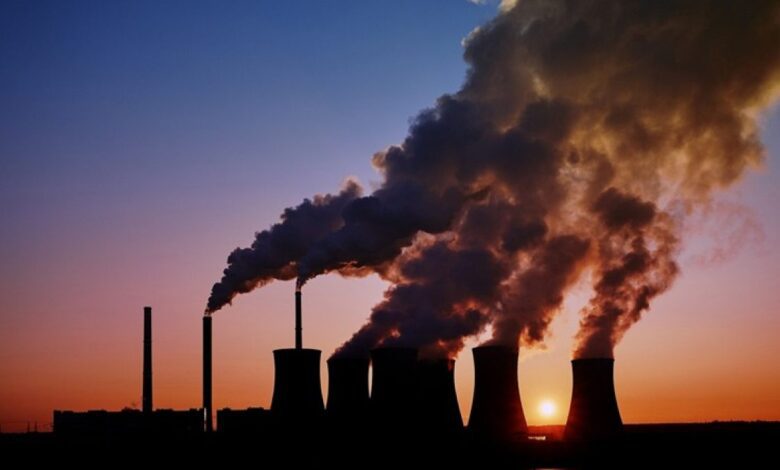India is projected to experience an 8.2% increase in carbon emissions in 2023: Study
As Emissions Soar in India and China, Urgent Action Needed to Avoid Overshooting Paris Agreement Targets, Warns International Report

Carbon emissions in India are expected to rise by 8.2% in 2023, while China is projected to see a 4% increase, according to a recent international research report. The findings, compiled by over 120 scientists from institutions worldwide, including the University of Exeter, UK, and based on established methodologies, reveal concerning trends in global carbon dioxide (CO2) emissions from fossil fuels and land-use change.
The Global Carbon Budget report indicates that despite efforts to reduce emissions, global emissions from coal, oil, and gas are forecasted to increase by 1.1%, 1.5%, and 0.5%, respectively. This contrasts with predictions of declines in the European Union (EU) and the United States by 7.4% and 3%, respectively, highlighting regional variations in environmental policies and practices.
In 2023, the total global CO2 emissions are estimated to reach 40.9 billion tonnes, with 36.8 billion tonnes attributed to fossil fuels—an increase of 1.1% from 2022. The researchers emphasize the importance of addressing these escalating emissions to curb the impact of climate change.
Atmospheric CO2 levels are anticipated to average 419.3 parts per million in 2023, surpassing pre-industrial levels by more than 50%. The researchers stress the urgency of taking meaningful action to mitigate the consequences of rising CO2 levels and the associated climate change.
The report underscores the limited impact of current technology-based Carbon Dioxide Removal efforts, excluding nature-based solutions like reforestation. These removal efforts amount to a mere 0.01 million tonnes CO2, underscoring the vast disparity compared to the millions of tonnes produced by fossil fuel emissions. The findings highlight the need for a comprehensive and multifaceted approach to address the carbon imbalance.
Approximately half of all emitted CO2 is absorbed by land and ocean sinks, underscoring the crucial role these natural systems play in mitigating climate change. However, the other half remains in the atmosphere, contributing to global warming and climate disruptions. The report emphasizes the importance of protecting and enhancing these natural sinks to maintain a balance in the carbon cycle.
Looking at the broader context of international climate agreements, the research team expresses concerns about meeting the temperature targets set by the Paris Agreement. The study estimates a 50% chance that global warming will consistently exceed 1.5 degrees Celsius in about seven years if current emission patterns persist. This poses a significant challenge for global leaders, requiring them to make rapid and substantial cuts in fossil fuel emissions to keep the 2 degrees Celsius target alive.
Pierre Friedlingstein from the University of Exeter, who led the study, concludes that it now seems inevitable that the world will surpass the 1.5 degrees Celsius target of the Paris Agreement. As global leaders convene at COP28, urgent discussions and actions are needed to address the pressing issue of climate change and set realistic and impactful emission reduction goals.
You might also be intersted in – Dead girl sold for $9,300 as ‘ghost bride’ in China; What’s this tradition?



